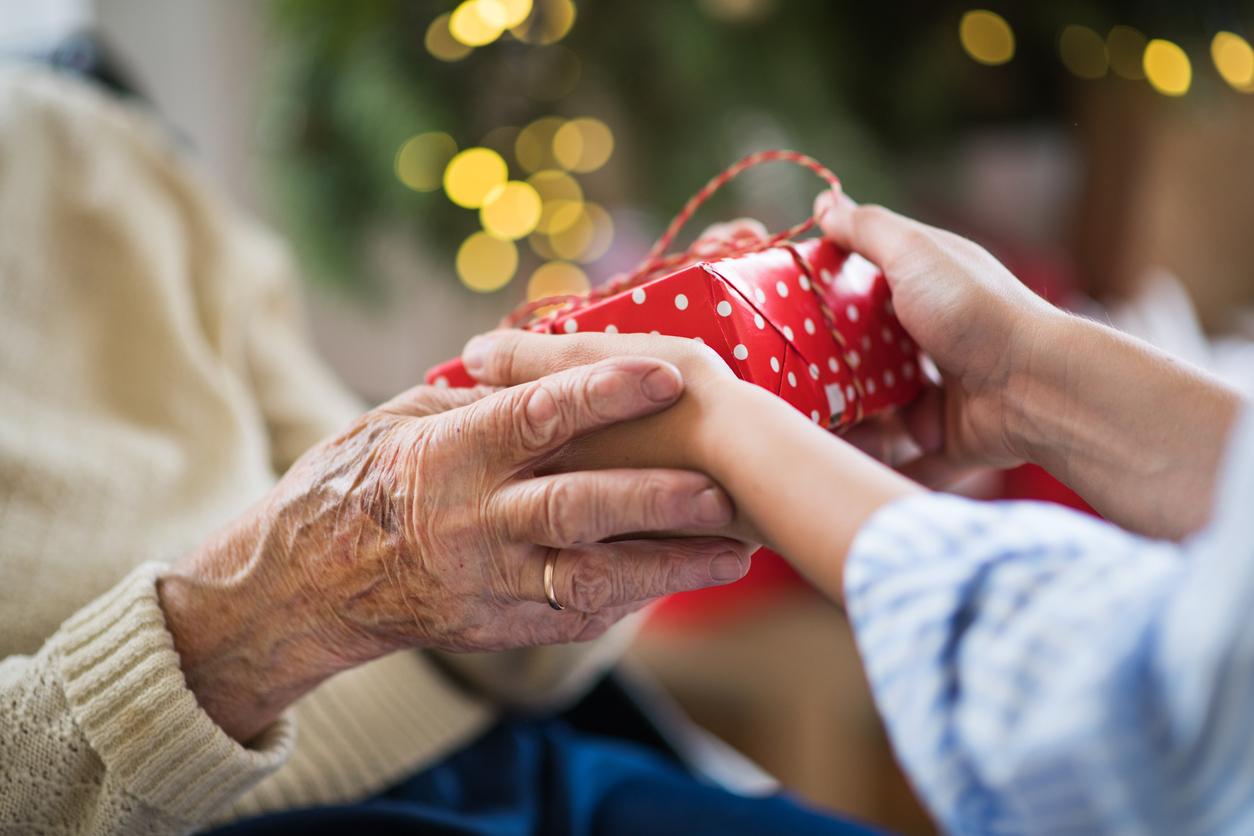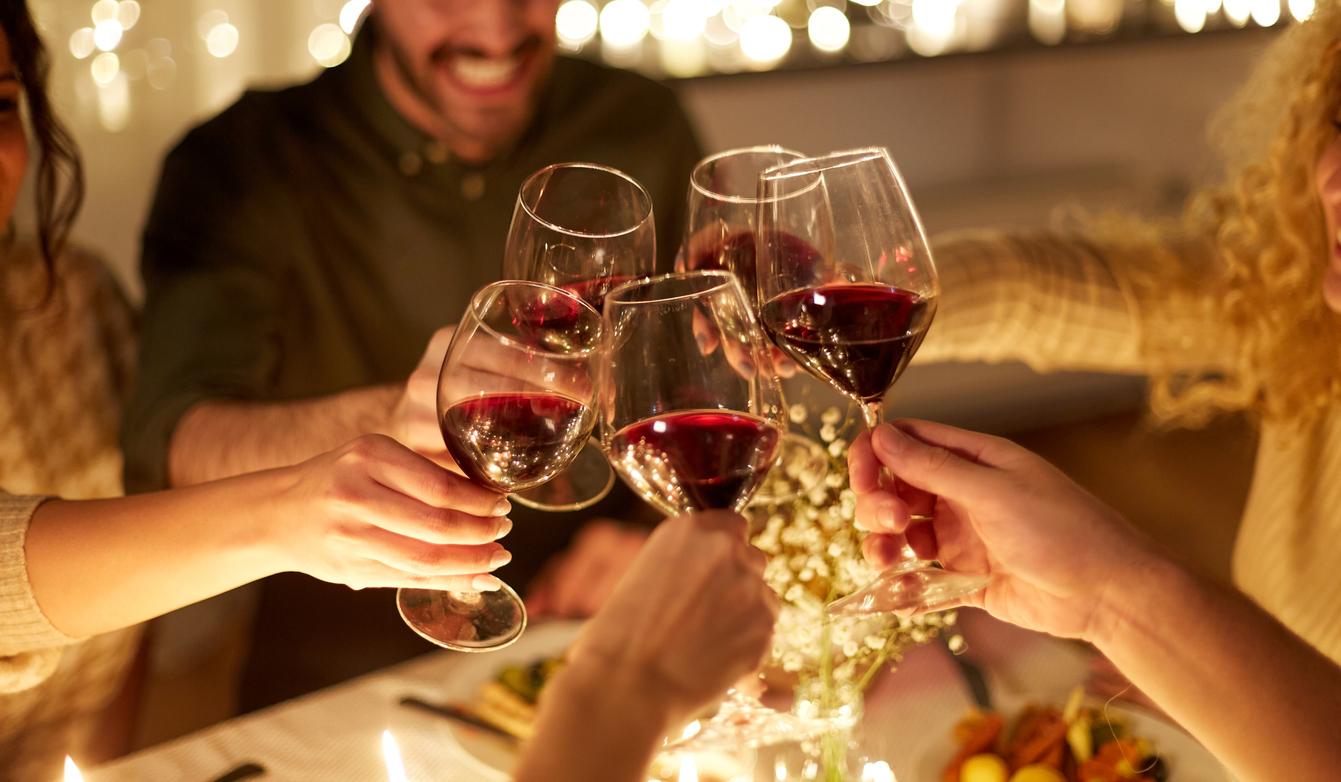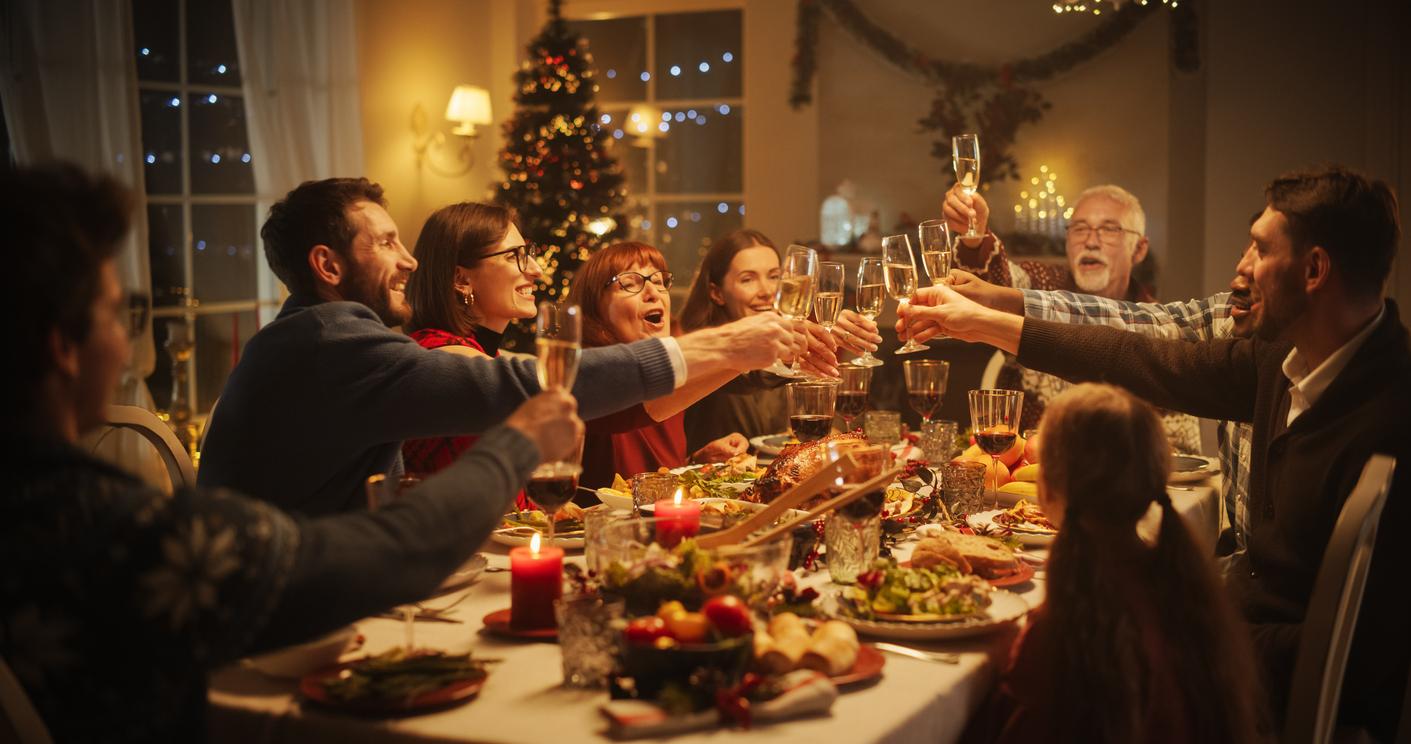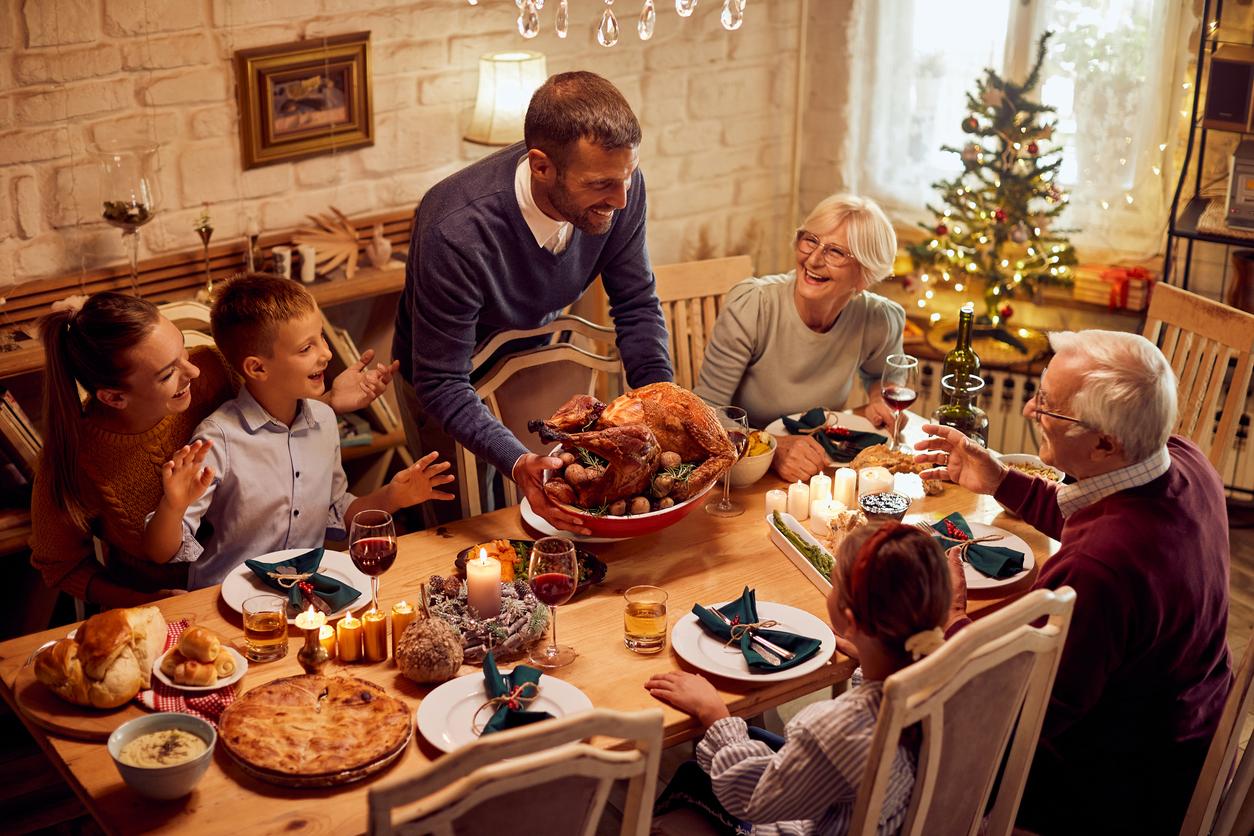Foie gras, smoked salmon, turkey, duchess potatoes, morel sauce, log… Christmas and New Year meals are very tempting. But, it must be recognized, they are not kind to our liver and our body. Nathalie Negro, dietitian and head of the Nutritional Center of the Thermes de Brides-les-Bains, shares her advice for making holiday menus more digestible and healthier.
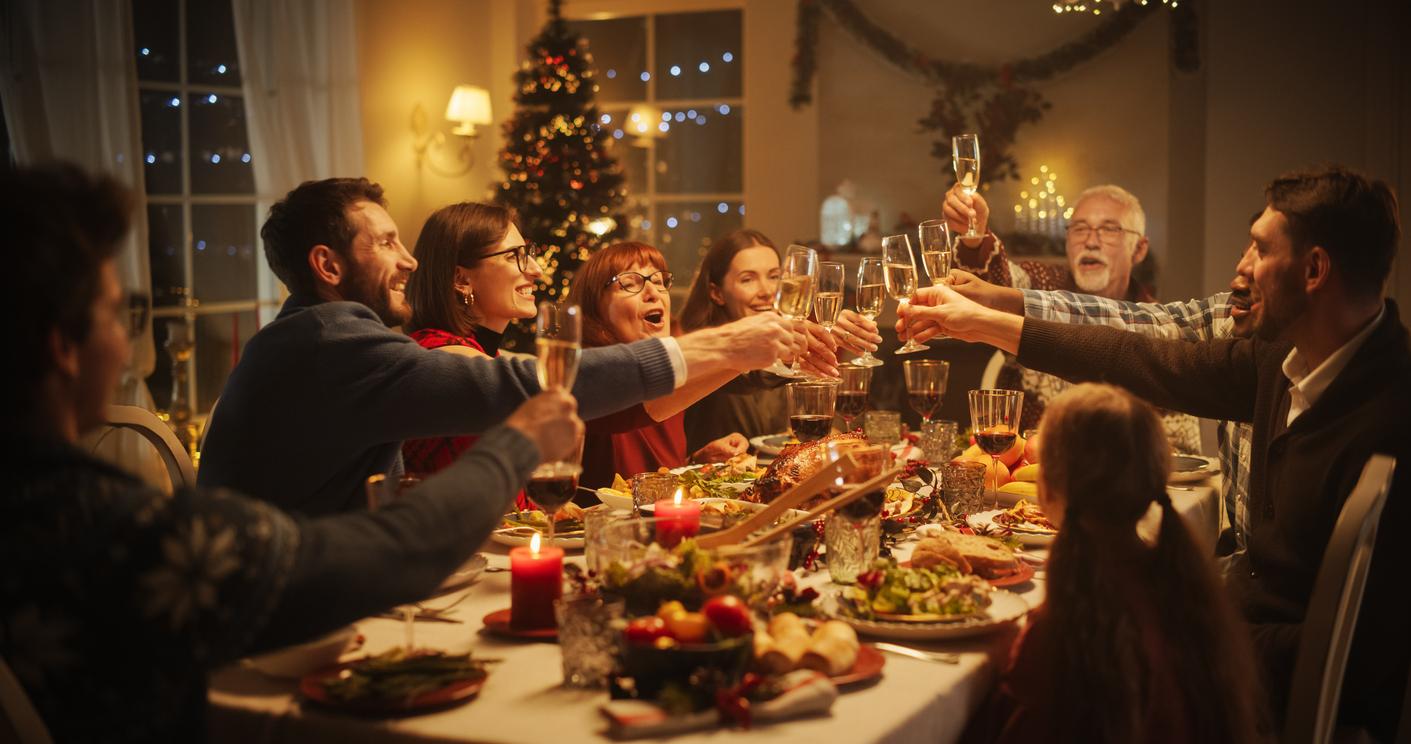
Why doctor: Whether it’s Christmas or New Year, the end-of-year festivities are synonymous with long meals in good company offering a large batch of delicious, but very rich, dishes. How to make holiday menus more digestible?
Nathalie Negro : What is recommended is to avoid the accumulation of rich dishes in the same meal. So, we start by sorting out the hyper-fatty holiday products which are difficult for the liver or gallbladder, and therefore take a long time to digest, and those which are much lighter.
For example, in starters: foie gras, smoked salmon and snails are very heavy while seafood – if you do not eat it with butter – does not present any particular problems for digestion.
Concerning the dishes, there are very fatty poultry such as goose and capon while Bresse chicken, duck or duck and turkey are non-fatty meats.
In desserts, the pâtissière log – generally made of buttercream – is rich in fat. On the other hand, the frozen log made from sorbet or the desserts made from fruit mousse or bavarois are lighter.
Then when composing the menus, we are careful not to concentrate all the heavy holiday dishes on the same meal. So according to family traditions and tastes, if we prefer foie gras and salmon at Christmas, we pay attention to having lighter things for the main course and dessert. If you want to eat capon, it is for the starter and dessert that you must opt for less fatty options. And so on…
Wine, champagne, cocktails… alcohol is also very present during the holidays. How to avoid putting your liver in difficulty?
Alcohol of course has repercussions on the entire body. But above all, it dehydrates. It is therefore important during festive meals to always have a glass of water in addition to your glass of alcohol. The water will quench your thirst and the wine will only be drunk to pair with the dish. This technique also allows you not to overindulge in the drink.
On the other hand, once the alcohol is drunk, what’s done, is done. You just have to wait for the body to do its elimination work. Last advice: if you drank alcohol on December 24 and 25, you should try not to drink it between the holidays, until the 31st.
Meals between holidays: “certain foods can help the digestive system”
Between the holidays, can we prepare our liver to soon have to face the New Year and its gastronomic excesses?
Unfortunately, no. The detoxification capacities of the liver cannot be modulated. They depend in part on our genetics and the toxins that the organ will be confronted with. However, certain foods can help the digestive system function well. Those containing organic acid, such as lemon and other citrus fruits, are known to stimulate digestion. Between the holidays, it can be good to add a slice of lemon to your tea or infusion. This will stimulate digestion.
If all vegetables promote digestion, some are particularly interesting such as artichoke and black radish which stimulate the production of bile, an essential element for the digestion of fats. Plus, we are in black radish season. So don’t hesitate. You can eat this vegetable in soup or grated. For example, between holidays, you can make a salad of grated carrots and black radishes. It’s light and will help the digestive system.
Can fasting be a solution?
Humans are naturally intermittent eaters. He already has periods of fasting during the day since he doesn’t eat all the time. Not eating at all for a day can be very counterproductive, because hunger will set in at some point. And if there is a leftover log or a box of chocolate at that time, it will be difficult not to fall for these very caloric foods.
On the other hand, listening to your appetite – saying to yourself I left the table at 5 p.m., I’m not hungry so I’m not going back to the table at 8 p.m. – is a good thing. We must not hesitate to listen to our body. If we’re not hungry, it’s because we don’t need anything. So don’t worry: if after New Year’s Eve you’re not hungry, don’t hesitate to skip breakfast. It’s very good.
Leftovers from the holidays: “you have to be careful not to redo the entire Christmas meal”
The festivities often end with lots of leftovers in the fridge. What should you pay attention to?
Above all, you have to be very careful with seafood, because they are products that are eaten ultra fresh. If they lack freshness a little, you can get extremely sick. So, if the oysters are not eaten during the evening, they are not kept. You also need to be careful with frozen desserts. You cannot refreeze the frozen Christmas log and eat it the next day. We risk food poisoning.
From a nutritional point of view, when you eat leftovers, you have to be careful not to redo the entire Christmas meal: starter, main course and dessert. For example, the next day, if you finish the dish at lunchtime, it is better to keep the remaining foie gras for the evening. You can also take the opportunity to add vegetables. Indeed, the problem with holiday dishes is often that they lack it. Dairy products and fruits are also rarely present. So, between the holidays, avoid starchy foods and favor vegetables then replace the cheese with natural yogurt or cottage cheeses.
“In the two to three weeks following the holidays, avoid all fatty everyday foods”
After the holidays, is there anything you can do to help your body recover from the nutritional excesses of Christmas and New Years?
Especially not detox cures, they don’t work. On the other hand, to avoid eating caloric leftovers for several days and thus pursue very rich menus: either freeze what you can, or share with guests before their departure. This allows you to return to a normal rhythm immediately after the holidays. Indeed, the concern of these celebrations is not necessarily the holiday period as such, but what happens afterwards: the leftovers that we eat for a week as well as the boxes of chocolate, the galette des rois, etc.
You should also think about resuming physical activity. This is, in fact, something that is missing during the holidays. In addition to family gatherings or meals with friends which take up a lot of time, gyms, swimming pools, classes… everything is at a standstill at this time of year. It is then difficult to do sports. Getting back into physical activity quickly helps you get back into a good rhythm.
In the two to three weeks following the holidays, avoid all fatty everyday foods: fried foods, cold meats, cheeses. In January, you should also watch out for the galette des rois. It is very rich and caloric. To prevent it from adding to the previous excesses, you must remember that it provides a lot of lipids and carbohydrates. Thus, it replaces both a fat and a starch. You need to know this when preparing meals. For example, if you ate a piece of pancake at 4 p.m., in the evening you should avoid any starch or fat. The meal can then be a vegetable base, fish or an egg, then dairy and fruit.
We must think carefully about balancing nutritional families. Indeed, a big excess at a given moment does not cause weight gain – our body is capable of handling it – the problem is the accumulation of small things on a daily basis. They are the reason why at the end of winter there are 2 or 3 extra kilos.











